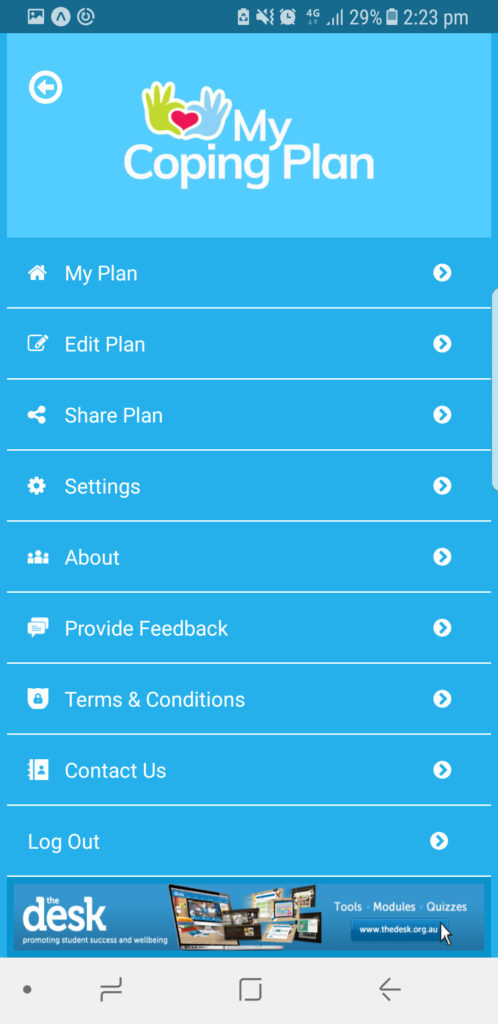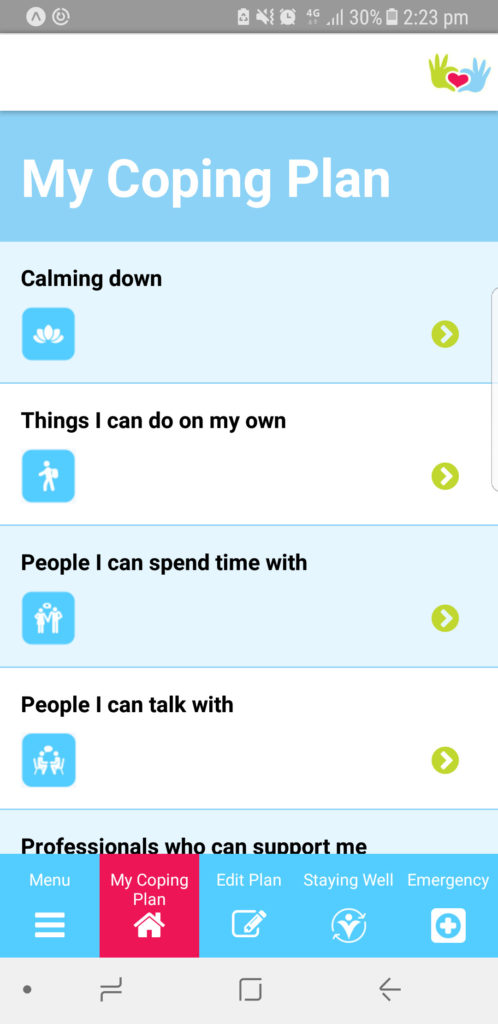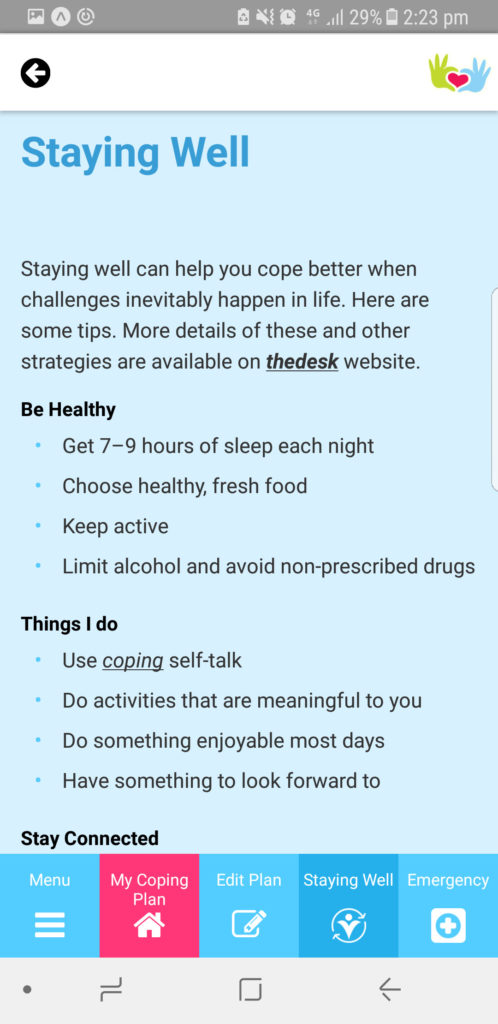Phone app makes coping with stress simple
Health & Medical
Practicing simple coping strategies is the key to beating stress and a new app takes this approach to its core.

Sign up to receive notifications about new stories in this category.
Thank you for subscribing to story notifications.
Clinical Psychologist Dr Helen Stallman has spent her career helping clients deal with stress and she has now translated her knowledge into a simple to use phone app that can help people cope better.
Dr Stallman, a Senior Lecturer at the University of South Australia
and the Director of the International Association for University Student Health and Wellbeing, specialises in mental health and wellbeing, particularly suicide prevention.
She has adapted her Coping Planning approach to suicide prevention into a free app that guides anyone through a straightforward process to deal with stress.

“Where the idea came from is we were looking at how we can prevent suicide,” said Dr Stallman.
“Suicide prevention tends to focus right at the pointy end of things like will someone die by suicide or won’t they. Where really we need to be focusing back on how people are coping with the stress.”
Dr Stallman developed a hierarchy of five coping mechanisms to stop stress escalating to a point where there doesn’t seem to be any options and put them on an easy to use phone app called My Coping Plan.
The app guides people through the five steps they can take to deal with stress, beginning with ‘calming down’ and then a reminder to do something they like, such as take the dog for a walk. The third step is to spend time with a friend, and then call someone they know. The strategies then escalate to professionals to call and finally emergency services to alert.
“The idea of the app is you have a really simple hierarchy of things to do when you are distressed and because it’s on your phone you tend to have it whenever you need it so you can just pull it out,” Dr Stallman said.
“The calming down exercise takes you through a few deep breaths. They calm your emotions a bit and then going on to the strategies that you’ve already planned out that work for you.”
Dr Stallman said the app’s simplicity – it has only five buttons – is deliberate because a complicated strategy would only add to stress, not alleviate it.
“It’s about how your brain works when you are stressed. Whether you are anxious, depressed or distressed what happens is you are in the emotional part of your brain so it is really hard to problem solve at that time. So it really needs to be a simple step-by-step ‘do this, do that’,” she said.
“If it was really complicated and you had to think about the whole app, then that’s just putting more stress on you at a time when you don’t need it.”

Dr Stallman said the app was structured around decades of literature that showed the strategies were really useful when a person was distressed.
“The calming down and coping strategies are things you can do on your own because you function better when you can cope independently,” she said.
The app lets the user program in their own coping ideas and people to talk to, automatically dialing their phone numbers.
“Sometimes you just want to be listened to. You just want someone going ‘yep, that’s really crappy’,” Dr Stallman said.
“We also know that despite all those things you sometimes don’t deal with the stress and then its good to step it up even further and its good know that professional support is there for all of us, not just there for a group of people. So having that as part of everybody’s plan is really important too.
“The final (step) that is hardcoded is that emergency services are always available too. Emergency department of hospitals or an ambulance if you are still really not coping well and you need some extra professional support.”
Dr Stallman said although the strategy was initially developed to prevent suicide, the app could help anyone, even children, develop healthy coping strategies.
“Just in the general population most of us have unhealthy coping strategies. Some people eat when stressed, some people drink, some people take drugs, some people just get really aggressive towards other people or themselves. These are really common behaviors,” she said.
“So anybody who is using unhealthy strategies would probably benefit from this app just to remind them so they start to change what they do when they are stressed so they develop more healthy coping strategies.”

Dr Stallman said that although the app was too new to have had any feedback from the public, she had been using the app in her clinic and her clients had reacted well to the system.
“They really like the change of focus. Traditionally our focus has been on how to keep you safe so you don’t die by suicide, which is again really at the pointy end,” she said.
“Clients have loved the fact we are focusing way back before that, before you get anywhere near that. Its how you are going to cope with your stress and normalizing it. They have really enjoyed having that app that they have carried around.”
My Coping Plan is available on Android and Apple devices.
Jump to next article



